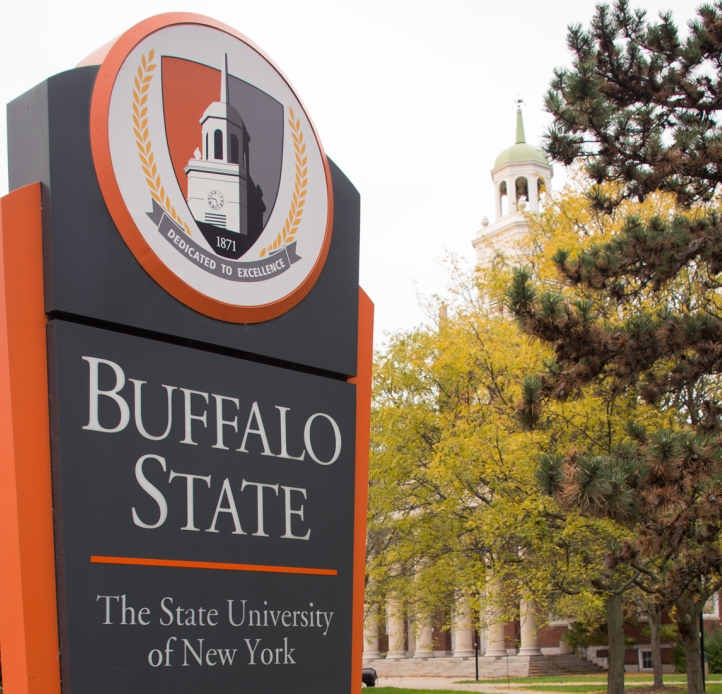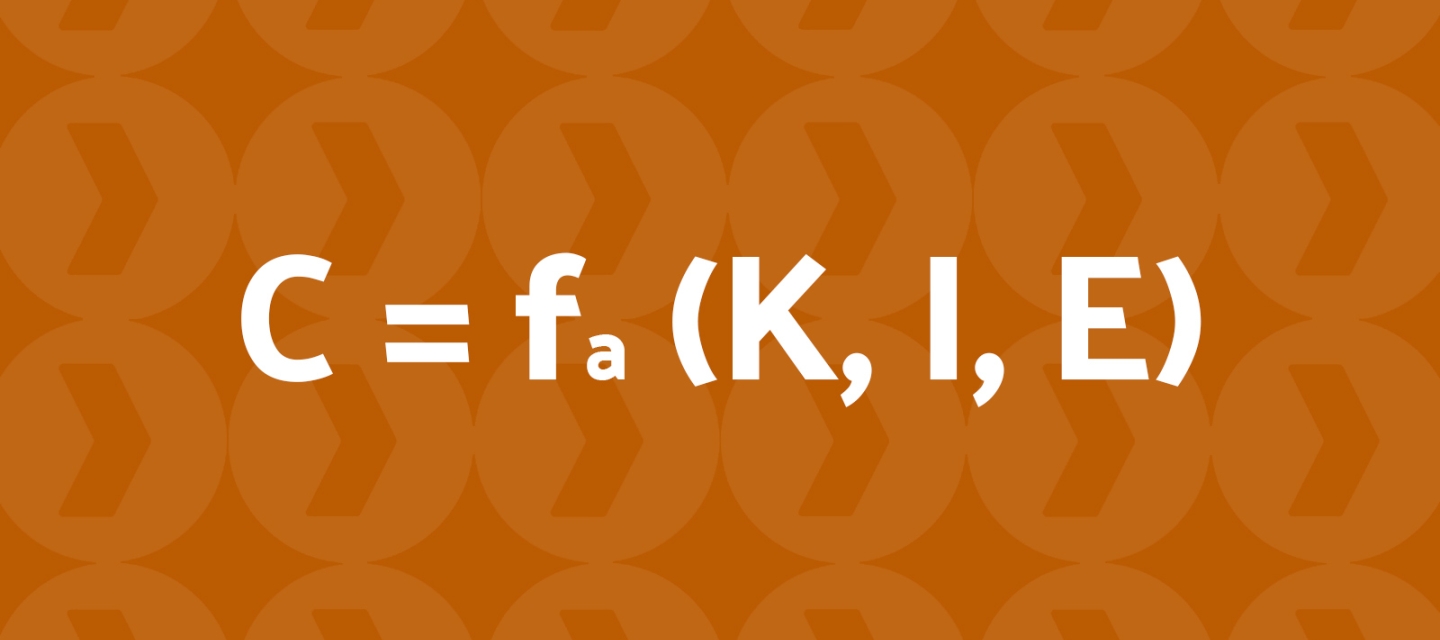
The Creativity and Change Leadership Department, and its Center for Applied Imagination, credentials creativity through a diverse menu of programs that cultivate skills in creative thinking, innovative leadership practices, and problem-solving techniques. The department, through the process of creative thought, enhances an individual’s ability to imagine new ideas by learning how to envision that which cannot be immediately seen.
Our graduate program courses are structured following the inspiration of Dr. Ruth B. Noller, one of our founding scholars, and her famous creativity formula: C = f a (K, I, E). Noller explained that creativity is generated by the interactions between Knowledge (K), Imagination (I), and Evaluation (E). Furthermore, she added that a crucial catalyst in the formula is the individual’s Attitude (A).
Thus, our curriculum weaves together courses organized into three strands, with a capstone course:
● Knowledge – Theories of creativity and creative leadership
● Imagination – Skill development in creative thinking, problem-solving, facilitation, and creative leadership
● Evaluation – Research methods and measurements of creative behavior).
Courses
CRS 560 Foundations of Creative Learning
Theory and research that form the foundation of the discipline of creativity studies; development of awareness and understanding of basic principles, select definitions, models and theories and practice in applying them in a variety of contexts. Group interaction, discussion and project work are expected.
CRS 625 Current Issues in Creative Studies. Prerequisite: CRS 559 or CRS 560
In-depth survey of current issues on the nature or nurture of creativity; skill development in research and scholarship to increase critical thinking skills and general content literacy of creativity practitioners in any discipline; review, analysis and interpretation of findings from empirical and non-empirical sources, with some emphasis on the background and development of research at the Center for Applied Imagination.
CRS 559 Principles in Creative Problem Solving
Theory and application of the Creative Problem Solving (CPS) process; practice in both individual and group uses for either personal or professional contexts; group work and active participation are expected.
CRS 610: Facilitation of Group Problem Solving
Prerequisite: CRS 559
Advanced strategies for leading small groups through the Creative Problem Solving (CPS) process; mastery of facilitation techniques and skills. Students receive expert feedback on their facilitation skills as they apply creative strategies to real issues. Examines conceptual relationships between facilitation and change leadership; develops basic change leadership skills.
CRS 670: Foundations in Teaching and Training Creativity
Prerequisites: CRS 559 and CRS 610
Practical experience in using principles of creative learning, Creative Problem Solving (CPS) and leadership to facilitate groups; guided practice and independent work in realistic teaching/training situations to develop independent learners and reflective practitioners; use of CPS facilitation skills to develop instructional designs and examine ways to modify teaching and leading with CPS in various groups or situations.
CRS 620 Creativity Assessment: Methods and Resources
Practical information on methods and resources for creativity assessment; review of basic measurement principles and a critique of specific tools used to assess creativity in both education and business. Students receive personal feedback on a number of measures and develop a profile of their own creative strengths.
CRS 690 Master’s Project (3 Credits)
The master’s project is designed to provide evidence of your mastery of the creative studies program through an applied project. It is a self-designed and directed inquiry into an area of personal interest. The range of projects is as diverse as the students engaged in them.
CRS 795 Master’s Thesis (6 Credits)
Design and implementation of empirical research (qualitative or quantitative) designed to make new and useful contributions to the field of creativity. Students work closely with faculty, and in many cases join ongoing programs of research within the department.
CRS 635 Creativity and Change Leadership
Prerequisites: CRS 560
Culminating activities that cap the Foundations of Creativity strand of the curriculum; understanding and applying the characteristics of change leadership in the context of creativity and Creative Problem Solving (CPS); theoretical and practical launching point for students to examine their future contributions to the field, domain and discipline by articulating their personal philosophy and definition of creativity; relation of the CPS process and other change methods to the challenge of making lasting change in other disciplines, such as business, education, psychology, sociology, history, philosophy or the arts or sciences.
Comprehensive Exam (0 Credits)
The comprehensive exam is made up of three components: (1) a literature review on a topic of the student’s choosing; (2) portfolio review of creative activities and accomplishments; and (3) an oral presentation summarizing key learning and growth resulting from the student’s graduate studies.
CRS 530 Creative Teaching and Learning
Creative teaching and learning in formal school, child care, homeschool and informal museums, libraries, clubs and family settings. Best practices and research-based approaches and materials for creativity education, facilitating opportunities to nurture creative behavior, building supportive learning environments, addressing resistance to creative teaching, and advocating for creative learning.
CRS 590 Independent Study
Independent study provides an opportunity for a student to pursue a topic that may be covered only briefly or not at all in a regular course offering. To enroll in an independent study, you’ll need to discuss with faculty members these areas of interest and secure a faculty member who is willing to serve as your advisor.
CRS 614 Advanced Cognitive Tools for Creative Problem Solving - Thinking Skills Model
Prerequisite: CRS 559
The Creative Problem Solving (CPS) model continues to be developed and refined. The current version, Thinking Skills Model, positions CPS as a framework for teaching thinking. This course focuses on developing students’ skills in applying and facilitating advanced creative problem-solving tools that involve diagnostic, visionary, strategic, ideational, evaluative, contextual and tactical thinking. It provides students with a deeper understanding of the thinking skills framework for CPS and it expands their thinking skills by teaching them a diverse set of thinking tools. The cognitive tools are drawn from the larger field of creativity (beyond the Creative Problem Solving Model) as well as from other areas of theory and practice such as quality improvement and strategic management and include decision-making and various problem-solving models. Students who are interested in a deep immersion in the Creative Problem Solving-Thinking Skills Model and exposure to a wider set of thinking tools will find this course of particular interest.
CRS 619 Organizational Creativity and Innovation
Prerequisite: CRS 559
Current research and practice related to organizational creativity and innovation. Developing skills in leading innovation and change initiatives in organizations from an applied perspective.
CRS 680: Designing and Delivering Creativity Education
Prerequisites: CRS 559 and CRS 560
Team-teaching experience in creative studies undergraduate courses under direct supervision of the faculty. With permission of the instructor, under special circumstances, team teaching may be done in a school, in industry or in a special creative problem-solving program.
Our Programs
The Creativity and Change Leadership Department hosts a series of programs—a master of science in creativity and change leadership, a SUNY graduate certificate in creativity and change leadership, two micro-credentials (Applied Creative Thinking and Creative Education), and undergraduate minors in creativity and leadership—with programs offered both online and on campus.
Our capstone course for both the SUNY graduate certificate and master of science program, which underscores the catalyzing effect of creative attitude in Noller’s formula, is a seminar in Creativity and Creative Leadership.

Master of Science
We were the first program in the world to teach the science of creativity at a graduate level.
Our master's degree in creativity is recognized globally for producing alumni who engage in the highest levels of creative thought.
Our 33-credit hour program will differentiate you as a scholar of creativity studies and will equip you with the tools to share your knowledge with others.
Program Overview Program Requirements Tuition & Costs Apply Now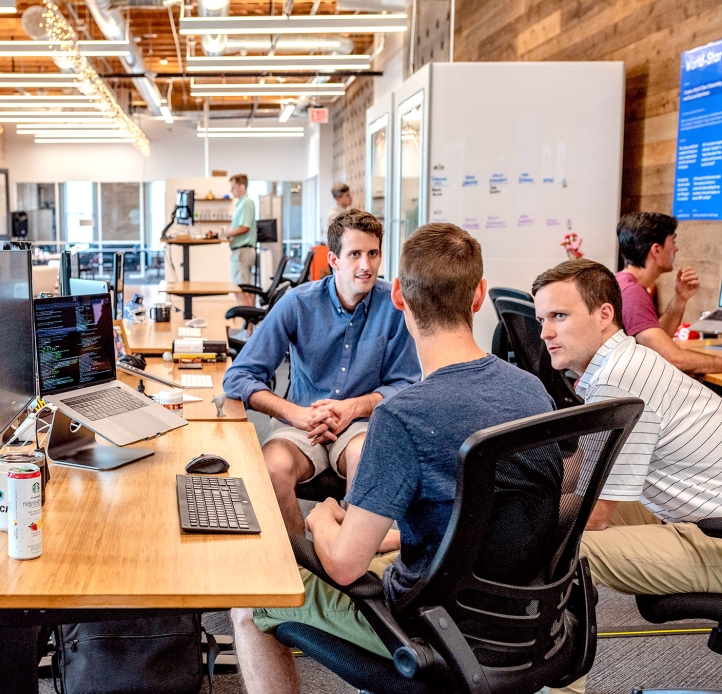
Graduate Certificate
An 18-credit hour (six courses) immersive educational experience that will equip you with the right mindset and tools to harness the power of applied creativity, problem-solving, and facilitative change leadership.
Program Overview Program Requirements Tuition & Costs Apply Now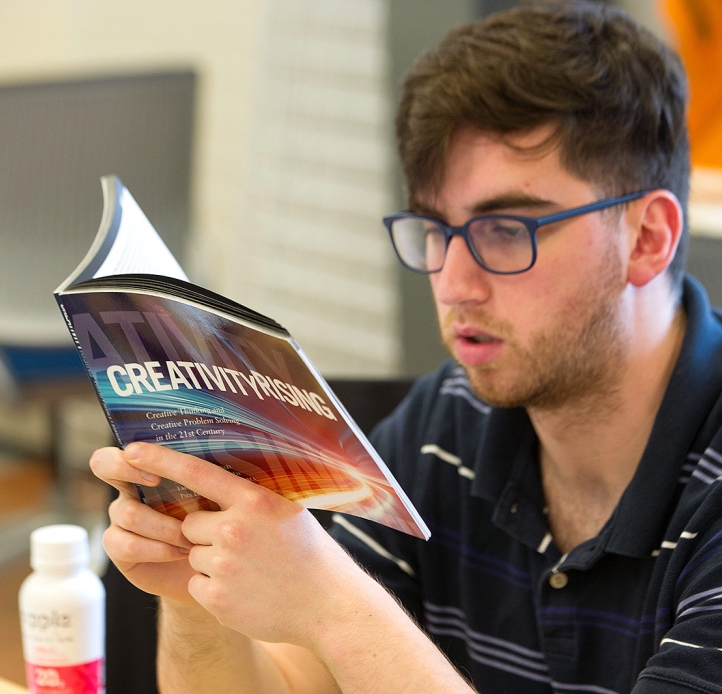
Undergraduate Minors
Through our undergraduate courses, creativity students develop essential skills that they can apply to their personal and professional lives.
Program Overview Creative Studies Minor Leadership Minor
Microcredentials
Microcredentials are short-term, focused areas of study designed to provide in-demand skills, know-how, and experience.
These specialized academic programs take months to earn, not years, and are stackable—forming a bridge toward a certificate or full degree.
Applied Creative Thinking and Problem Solving Creative Education: Innovative Learning, Thinking and Problem SolvingGraduate Course Options
Elective Course Options
On Campus or Online
Our master's program and graduate certificate are available via in-person instruction or fully online for busy professionals looking to upskill with twenty-first-century abilities.
